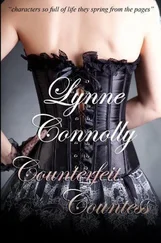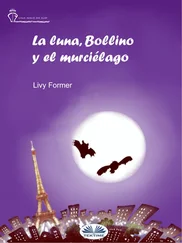Iris never wore a wristwatch, didn’t even keep a clock beside the bed, as if she could outwit time by refusing to keep an eye on it. There was only one clock in their house in London, a wind-up one, in the kitchen. But in the house in Malvern there were two long-case clocks, so that if you listened hard you could always hear ticking wherever you were, except in the bathroom with the taps running. Both clocks chimed the quarter-hours, and the smaller walnut clock in the breakfast room appeared to pause momentarily, as if drawing in its breath, before chiming always very slightly ahead of the bigger mahogany clock in the hall. In this house time was ordered, it announced itself politely and was made quietly welcome. Nothing was hasty.
Ruth found the not knowing how long her mother would be away far worse than her absence itself. It was like not knowing whether you’d be staying somewhere long enough to unpack your suitcases properly and unfold all your things and put them in drawers: it made it difficult to settle. After the first two weeks her uncle Christopher made arrangements for her to attend a school further up the hill in the town. Most of the children who had come to Malvern to get away from London had gone home by then, but three evacuees were still there. Ruth was glad to hear their familiar London voices, but they were a tight-knit group, not looking to make extra friends. Out on walks, Ruth had seen the little African princesses who went to school on the other side of the hill. It was said that their father was the King of Abyssinia and that they were descended from King Solomon and the Queen of Sheba. She wondered if they were lonely, so far from home. In her class she liked a girl called Veronica, who had long plaits the colour of dust caught in sunlight. Veronica owned a pair of real tap-dancing shoes, which she sometimes allowed Ruth to try on.
Every afternoon her uncle collected Ruth from the school gate and they walked home together, looking at trees and birds along the way. Christopher liked things that other people didn’t care for, as well as noticing things that other people didn’t even see. He told her about crows, how clever they were, how long-lived. People generally feared them, because they were ominous and ate carrion and cawed so loudly, but he enjoyed looking at their tip-tilting jaunty way of walking. He pointed out the flash of blue under a magpie’s wing and told her it was a useful lesson to remember: that even when things looked black and white, they could still surprise you. Magpies looked showy but they were thieves, they took songbirds’ eggs and they made a horrid noise that sounded like mockery. Plumage wasn’t everything.
At half past four tea would be waiting for them: paste sandwiches, bread and butter spread with red jam; or sometimes, as a treat, extra thinly sliced and sprinkled with demerara sugar. Then there would be a piece of the sponge cake which was baked once a fortnight; only a small piece, because it used up such a lot of fat and sugar. It was a matter of pride to Ruth’s grandmother that there should be cake despite the shortages, as if she was not bowing to the Enemy by allowing standards to fall.
A few chickens were kept in an outhouse behind the shrubbery, and once the warmer weather came there was never a shortage of eggs. This was meant to be tremendously lucky, but Ruth had secretly gone off eggs, since being given the task of collecting them, most mornings. She hated the sweetly rotting smell in the henhouse, and covered her nose with her elbow when she went in. She thought she detected something almost snakelike in the furtive sideways glances of the chickens. Once, she found a hen with a dead mouse in its beak, shaking the little corpse as if to loosen its skin, like someone impatient to take a damp overcoat from a guest. After that she found it hard to swallow the runny boiled eggs she was given for breakfast once or twice a week. An egg fluffed up and hidden in a cake was not so bad.
And then two letters came from Iris. She was in Cairo, which gave Ruth a shock. One was addressed to her grandmother, who did not open it at breakfast, but went into her husband’s study with it afterwards, shutting the door quietly behind her. The other was for Ruth.
Darling girl,
It is all the greatest fun here with people from all over the place, New Zealand and Australia and goodness knows where else. I think I may be able to stay on and do my bit to help out, so I hope you will settle nicely with Granny for the time being and be a good girl. I know you will.
One can find all sorts of things in the market, which they call a souk. Queer kinds of fruits like pomegranates and also great vats of powdered dyes in bright colours. Lots of odd-smelling spices in big sacks. Such a change from dreary old London! They drink a kind of tea which is made of mint leaves, rather good.
I’ve seen several camels! Close to they have the longest eyelashes, and when they stand up they make a complaining noise, rather like an old drawer being opened.
Darling, it will do you good, being in the country. I’m sure your uncle will teach you all about nature while you are there, so that you’ll have lots to tell me when I get home. On no account let him take you to watch cricket when the summer begins! It is absolutely deadly, tell him I absolutely forbid it.
When you write, Granny will address the envelope for you to be extra sure your letter reaches me, I’ve sent her the poste restante.
With lots of love,
Mummy
For the time being. What did that mean? Did it mean weeks, or months? She had mentioned cricket and the summer: did that mean Ruth might be here until the summer, or throughout the summer, until autumn came? What could she possibly be doing that would help the war? Iris could type and she was quick at things, but she hadn’t had a job in London. Ruth wasn’t sure that her mother had ever worked at anything. And most importantly she didn’t say whether she’d found Edward. The fact that she didn’t, Ruth reasoned, must mean that she had not. But surely that was why her mother had gone away in the first place, to look for him? So why was she staying on? Why didn’t she carry on travelling, looking for him? Or simply come home?
Ruth didn’t like to ask her grandmother about these things because she thought, although her grandmother didn’t show it, she must have been fearfully worried to have a son missing in the war: so worried that it was never mentioned. Instead she waited until after school, when she was alone with her uncle Christopher. But unusually for Christopher, who was so good at explaining things, he offered no clarification. ‘I really couldn’t say,’ he told her. ‘I’m sure your mother has her reasons.’ Ruth felt a thin trickle of disappointment spreading down her body. It lodged in her chest, like a boiled sweet swallowed the wrong way. That night in bed, she curled the side of her mattress back, so as to reveal the words she had written on the wallpaper. She looked and looked at them, until the letters blurred.
Chapter 2 Chapter 2 Chapter 3 Chapter 4 Chapter 5 Chapter 6 Chapter 7 Chapter 8 Chapter 9 Chapter 10 Chapter 11 Chapter 12 Chapter 13 Chapter 14 Acknowledgements About the Author Also by Cressida Connolly Credits Copyright About the Publisher Конец ознакомительного фрагмента. Текст предоставлен ООО «ЛитРес». Прочитайте эту книгу целиком, купив полную легальную версию на ЛитРес. Безопасно оплатить книгу можно банковской картой Visa, MasterCard, Maestro, со счета мобильного телефона, с платежного терминала, в салоне МТС или Связной, через PayPal, WebMoney, Яндекс.Деньги, QIWI Кошелек, бонусными картами или другим удобным Вам способом.
Читать дальше












